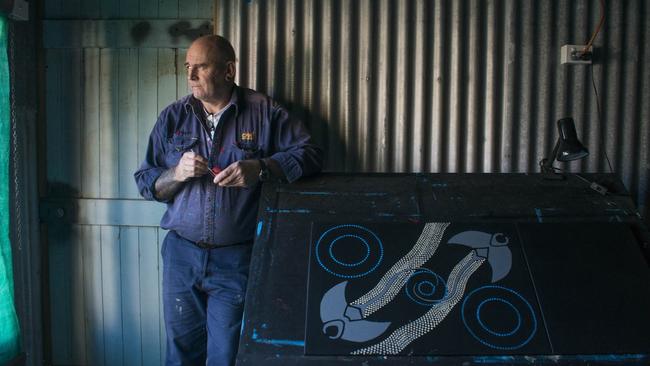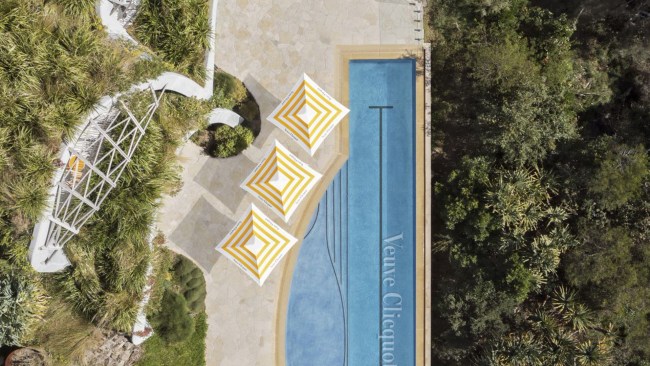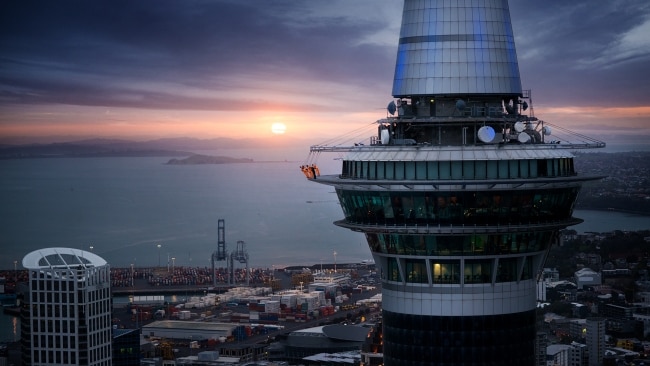Finding peace dot by dot
A troubled past has given way to a bright future for legally blind artist Mark Mclauchlan.

Tasmania “just feels right” for Mark Mclauchlan.
Having lived a life that was not all good, most of it on the mainland, the vision-impaired artist has found his home now in a crisp part of Tasmania.
“It’s just beautiful over here,” he says.
Mclauchlan left most of his health and financial issues behind to hunker down and rediscover an artistic life that had become swamped by the daily concerns of city living.
He has reacquainted himself with his senses after swapping the heat of Western Australia for Tasmania’s wild North West Coast, where during winter he can snuggle by the fire in his fleece and woolly socks.
“The lack of pressure and stress here means I just find it so easy to slip into the right-hand (creative) side of my brain,” he says.
“You can get so caught up in the left-hand (logical) side of your brain when you’re surrounded by cities and material things, and you don’t explore the creative side.”
Mclauchlan hasn’t opted out of the rat race; rather, he’s found solace in the sensory delights of Tasmania and is building a following with his sea-life themed dot paintings.
“I’m near the ocean and the river, and it’s just by chance that I like painting sea turtles and am starting to explore more marine life,” the artist says.
Home is in Wynyard, in Tasmania’s North-West. The attractive coastal inlet is the location of a stunning natural wonder, Table Cape, the remains of a 12 million-year-old volcano that now explodes with patchwork fields of tulips.
“I’m right next to Table Cape, and you can go up there and do a short walk on the cliffs and get a photo taken with nothing but ocean and starry skies behind you,” he says. It’s also provided him with a place to meditate.
The part of Tasmania that has allowed Mclauchlan to “reconnect with the simple things in life” — the scents, sounds, space and slower pace that had the artist fall in love with the region — will captivate visitors.
“The things that don’t cost money, that are there every day right under your nose but you don’t see because you’re caught up in the stress of everyday living — you see them here,” he explains.
That “seeing” is largely metaphorical for Mclauchlan, who is legally blind. In his work he has focused on dot painting because “anybody can paint a dot, can’t they?” he jokes.
“I’m not highly skilled, so I can paint dots and I concentrate on doing dots one at a time,” he says. “With my vision field being narrow, it just makes sense. I’m quite good at focusing and concentrating and early in the piece doing them I also found it so refreshing. It was almost like meditating. You can focus.”
Painting and Tasmania are the happy end result of a tumultuous journey. Mclauchlan used to draw at a young age, but life interrupted. He was almost fatally injured when a car hit him, nearly losing a leg before enduring decades of consequences.
One of them was immobility; for distraction and exercise, he hobbled to an outdoor wall and began painting dots until the pain of standing with his walking frame became too much. A 5m long water snake on a bright blue background, and the renewal of his creative life, was the result.
Recently the community outreach worker has increased his artistic output and he humbly notes that “people seem to like” his paintings. He’s now working to create a platform for artists with disabilities to display and sell their art.
Besides allowing Mclauchlan to leave his troubles behind him, the sublime southern state has energised him. His says his senses have come alive during the colder months in a world of thick socks, beanies and comfort food. “I have found I smell more things,” he says, adding that he is also invigorated by the “lack of sound”.
The romance and simplicity of winter in Tasmania has allowed him to build a wonderful togetherness with his girlfriend, grounded in conversation and warmth.
“It’s like the best relationship I’ve ever had, because it’s based on the very basics,” he says. “We treat each other with respect and everything’s straight up and genuine because we live a simple life.
“You can think of it as either a concentration or a minimisation of influences, but the influences you get here are so pure. It’s sometimes hard to put into words, but the best way I find to describe living here is that it is like meditation, when you just feel at home.
“I feel at home here, and that just imbues every part of my life.”
This content was produced in association with Tasmania — Go Behind The Scenery. Read our policy on commercial content here.


